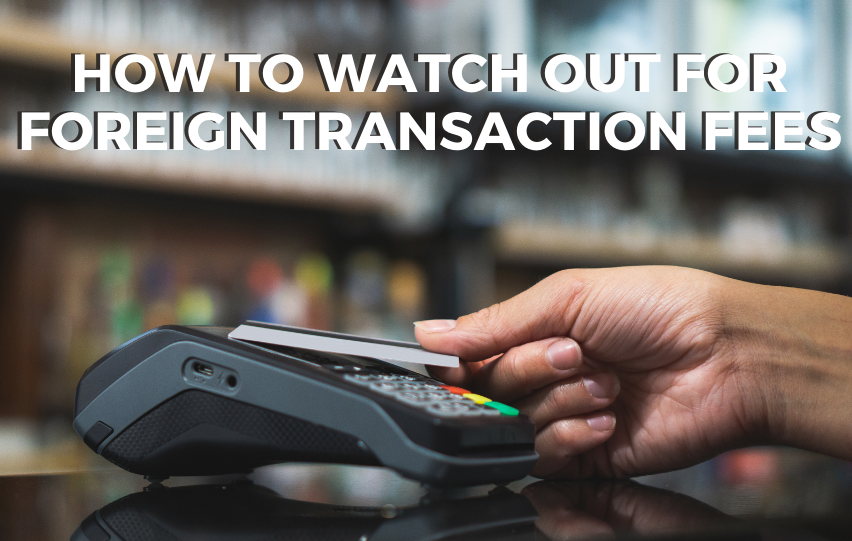Individuals planning a trip overseas know the struggle of dealing with foreign transaction fees. Normally filed under credit card fees, this fee is typically buried in the lengthy terms and conditions page of your credit card agreement.
While international fees may seem like no big of a deal, it can actually eat up a ton of your budget. Not to mention, these fees can even be acquired on home soil, when shopping at an online retailer.
Thankfully, you can find ways around these pesky fees. Not only can you save more money in the long run, but you can also be more financially savvy in your transactions both in and out of the country. Check out this guide on foreign transaction fees.

International Fees and Potential Consequences
Foreign transaction fees are charges levied by a bank or other financial institutions to a cardholder who uses their credit card to make a purchase in another country using foreign currency.
It is also charged transactions go through a foreign bank or when individuals purchase from online retailers outside of their home country or overseas. ATM withdrawals can also incur these international fees.
These charges can add up over time and eat away at your finances. This can be an even bigger inconvenience when you’re traveling abroad.
Tips on Avoiding Foreign Transaction Fees
Find a Card That Does Not Have Foreign Transaction Fees
To avoid paying these pesky fees, one of the best options you can choose is to find and apply for a credit card that does not charge foreign transaction fees.
Most cards that waive foreign transaction fees tie such privileges with other benefits on travel credit cards. This type of card is ideal for people who incur their foreign transaction fees mostly through travel.
Pay Using the Local Currency
Another logical step you can make is using the local currency to pay for your transactions. Normally, merchants and partner establishments ask cardholders what currency they want to pay in. To save money, you should always opt for the local currency.
While it’s assuring to see familiar currencies, such as USD, this can be counterproductive since dynamic currency conversion rates can be quite high. This is because the overseas merchant chooses the exchange rate to convert the cost of the transaction themselves.
Choosing to pay in the local currency ensures that your credit card network will handle the conversion, thereby giving you the best rates. Plus, you can even avoid foreign transaction fees altogether.
Exchange Currency Before Leaving the Country
Finally, to avoid foreign transaction fees on your card, you may want to use cash. As with many countries, cash is still king, particularly where credit cards are not usually accepted.
Before you even go on your trip, make sure you gauge how much cash you’ll need and exchange some currency before leaving. Having a little spending money, especially for emergencies, can give you some peace of mind knowing you have cash on hand.

The Takeaway
Choosing a card with no foreign transaction fees and other hidden credit card fees can go a long way. With these fees being a burden to your finances, you’ll most likely want to choose a credit provider that does away with these or keep tabs on currency conversion fees to avoid racking up charges.
